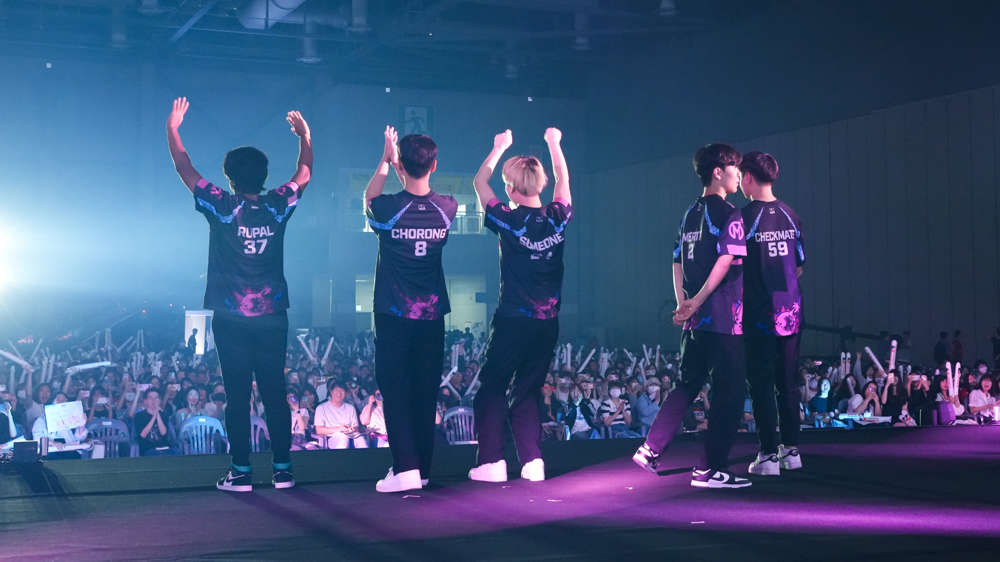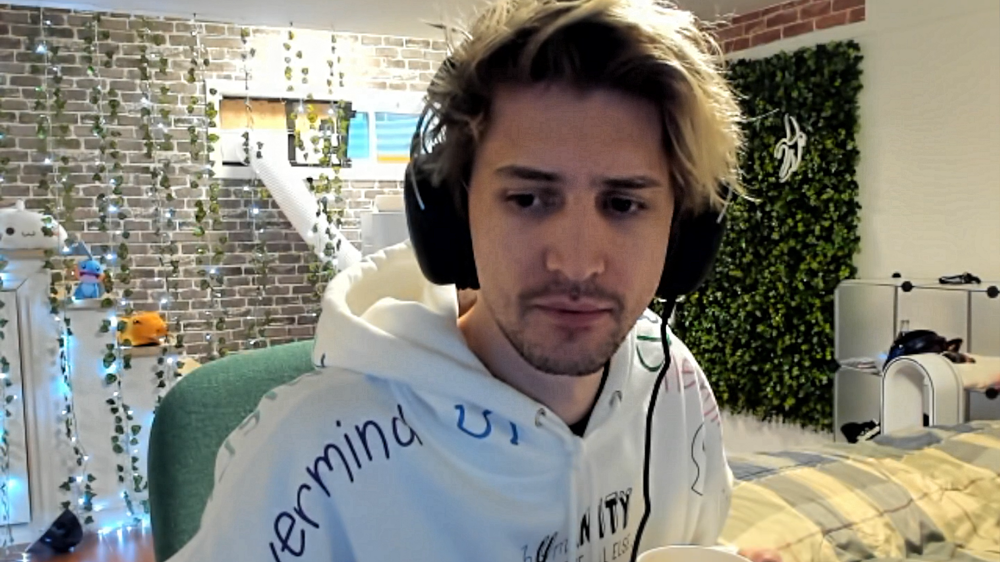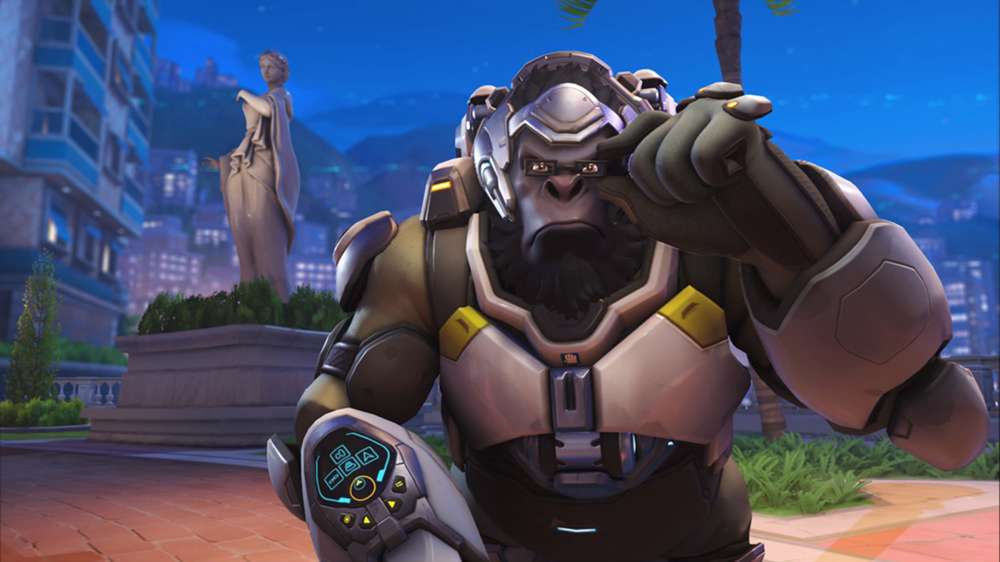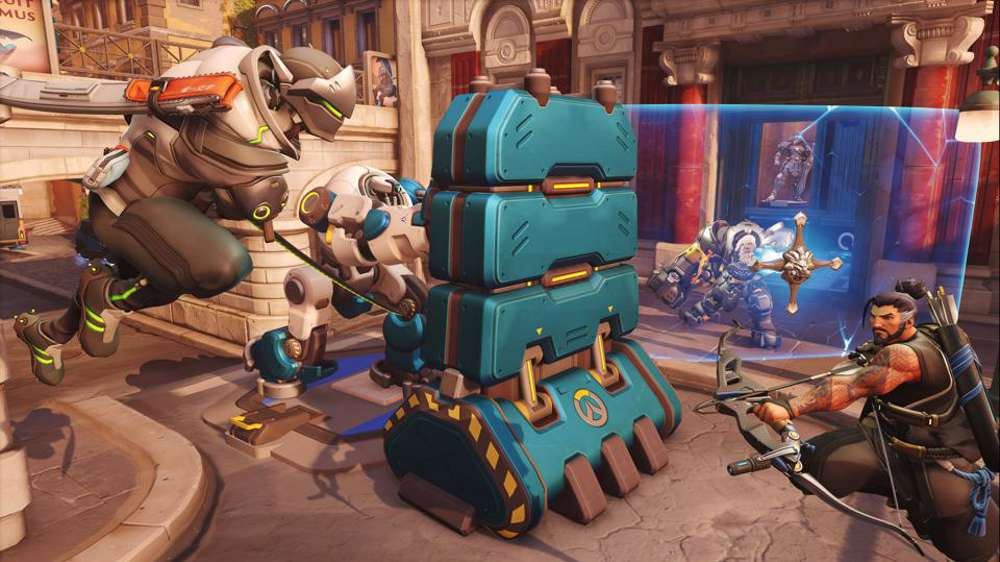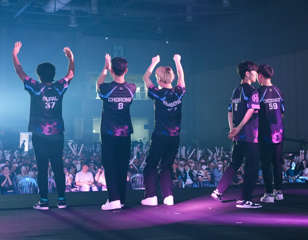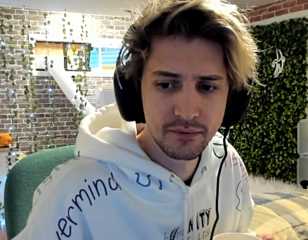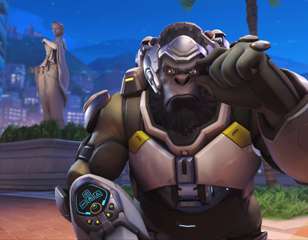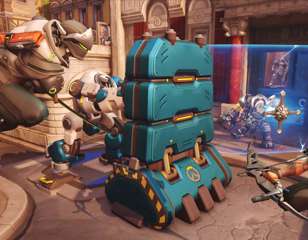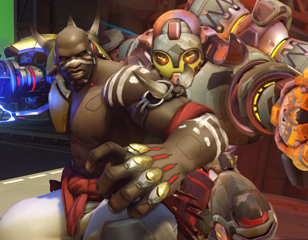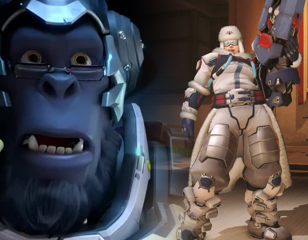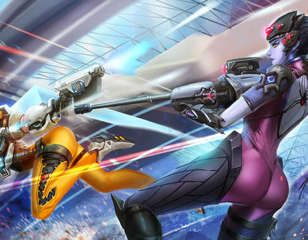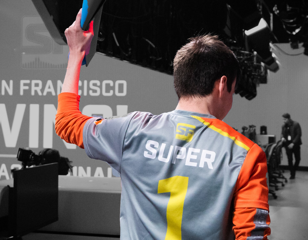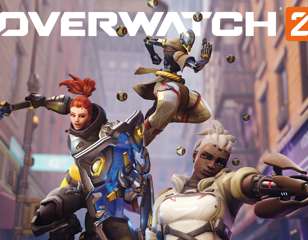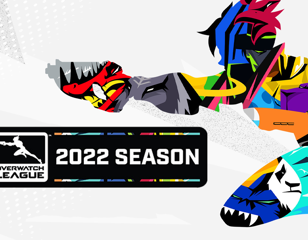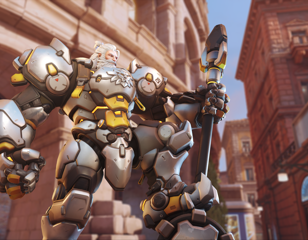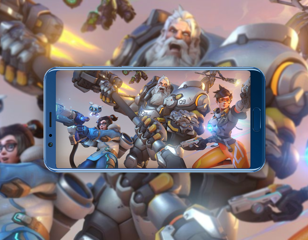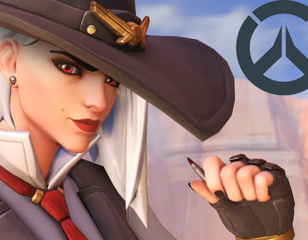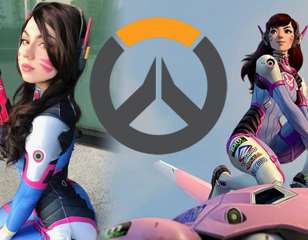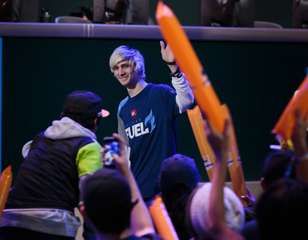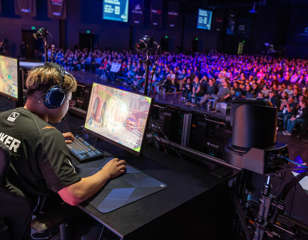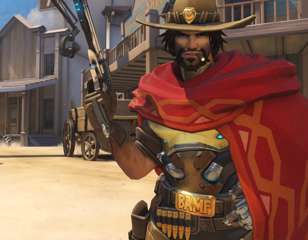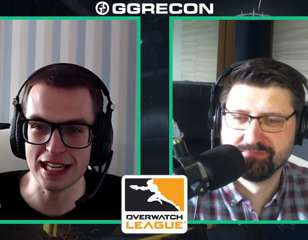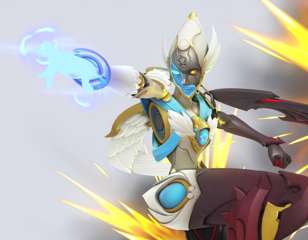The Greatest Six - Best Flex Support Of Overwatch 1
A real carry role has had incredible players try to become the best in the world. Who was the best over the history of Overwatch 1?

Sascha Heinisch
17th Dec 2021 18:08
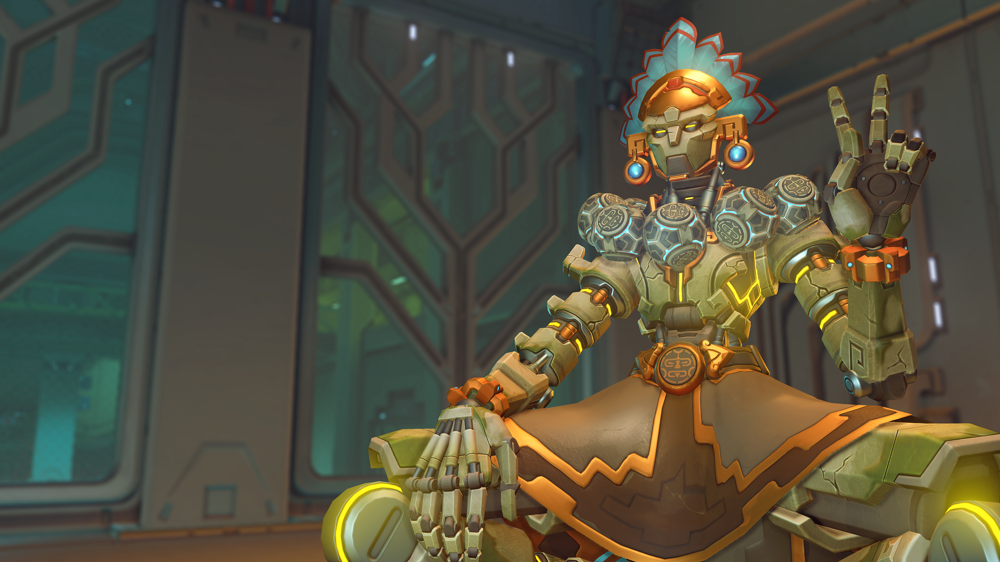
Whenever the discussion is raised on the best or greatest of all time, there are two common grievances shared in comment sections. Either a representative amount of the community feels that it is too early to say or that the roles in Overwatch are so sufficiently different, that figuring out a fair method between each player’s contributions is just always going to be unsatisfying to them. Taking those into account, I sliced differently here.
With the end of top tier competition in Overwatch 1 as we are likely to consider the impending pre-OW2 patch different enough from what we have been playing before, with the downsizing of teams from six to five players alone being likely a much more significant change than either role lock or hero pools, we can set a hard stop time in the present and side-step the 'of all time' qualification.
Criteria
When asking who the best player of Overwatch 1 in a particular role was, I’m looking at the following criteria:
- Trophies
- Personal awards
- Longevity
- Flexibility
- Playtime
- Performance evaluation
Trophies are a decent method of telling how good a player was, but from history, we know that they aren’t always telling the full story. While a player like WhoRU has two APEX trophies and an Overwatch League title under his belt, he only really played a vital role in one of those achievements. Other qualifiers are therefore required. For reasons outlined in this article, I will count two APEX titles the same as one OWL title.
Personal awards are another solid indicator of performance. However, as snotty as that may come off, especially in earlier seasons in the Overwatch League, the process of awarding personal trophies was far from rigorous, only countered by the eventual recipients of for instance the MVP trophy being fairly straightforward with one candidate shining bright. Nevertheless, aggregated opinions make for a strong predictor of actual performance and should weigh heavily.
Longevity I expect to be a divisive point. My reason to weigh it heavily is based on the large number of big changes Overwatch 1 has experienced in its time. A player who was able to stay on top through different competitive formats, heavy balance changes and hero reworks, fundamentally different meta archetypes, role lock, hero pools, and more is simply a different beast to a player who even has achieved the most for a year or two. Winning the biggest trophy is a gamble you won, being among the best for five years or more is a statement.
Flexibility and playtime go hand in hand. A player who was able to mainly coast on a single hero (like Tracer) being prevalent in the meta shouldn’t be punished for her strength, but when they aren’t fielded when other heroes are the flavour of the month, it needs to be considered. A player who has to play the entire hero pool for his team has a fundamental disadvantage in every given game against a specialist who can sit on the bench and hone their one-trick-pick.
Performance evaluation is both the eye test of experts and pundits shared with me and a rough estimation of statistical performance over the length of Overwatch 1 esports. While the personal award criterion accounts for some eye test qualifications, it’s an imperfect view of performance. After all, a player like Profit who many call the GOAT has so far only got two personal achievements and has only been nominated for season MVP once.
In terms of their weight, I did not consider performances of year one of Overwatch to be considerably less important than of year five. While it is true that the level of play increases a lot during a game’s life cycle and that competition generally gets more serious as it professionalises, I believe that players need to be evaluated in the context of the time their play takes place in. Would you not consider chess legend Garry Kasparov one of the greatest players of all time after having been the world no.1 for almost 19 consecutive years, even though he’d likely lose against a lot of top chess professionals who learned the game after the AI revolution of the sport? The answer feels obvious.
The Best Flex Of Overwatch 1 - Minki "Viol2t" Park
Trophies:
- 4x Overwatch League Stage Wins
- 2x Overwatch League Win
Awards:
1x RoleStar Support
I might be appearing to violate my preference for consistency with this choice, with Viol2t not having had early competitive experience, failing to make APEX twice and only having his breakthrough with O2 Blast. However, it can’t be understated how important Viol2t has been for the San Francisco Shock throughout their back-to-back championships. In those, he likely went underappreciated and with too few awards to his name to explain his real impact. Hearing the players of the Shock talk about him at the time was delivered in a rare tone not often heard in esports, namely sheer awe for a fellow competitor. Almost swooning over his ability and determination, the Shock players were clearly pushing Viol2t for an MVP campaign and one he possibly deserved, had all roles been considered equal.
Even in season 4, Viol2t was still one of the top tier flex supports, despite playing a bit of DPS during the season. One could argue that this hurt his case and put him out of shape in his main role, putting Twilight ahead of him at times. However, his class still showed when he was back on his bread and butter though probably not as clearly gapping as he did in the past.
Viol2t vs Other Competitors
Other competitors strongly considered were: Twilight, Jjonak, Shu, IZaYaKI, Alarm.
Most top tier flex supports of 2021 weren’t widely known once APEX concluded and it is, therefore, curious to think of Jjonak, someone we once considered to be the ultimate rookie, to be one of the most seasoned veterans in his position. League titles have escaped him so far, and one has to wonder if a League title is in reach with his new roster on the Dynasty. While his individual performance shouldn’t be considered too far behind any of the direct competitors, he has certainly been quiet over the last couple of seasons, not least due to the slow decline of the NYXL as a team.
Twilight is one of the longest-standing players but feels gatekept by his decision to only join the Overwatch League with RunAway after everyone became eligible. Nevertheless, he remains one of the top players in his role, though not enough against the player who benched him for a lot of playtime.
Shu’s last years have more or less low-key been the strongest individual performances of a flex support behind Viol2t, but a lack of trophies other than the Countdown Cup title makes for a weak claim in comparison to the most winning one.
IZaYaKI is an interesting thought experiment and likely one which requires the thinker to overcome a large amount of recency bias because he was certainly a better player than Viol2t in season 4. Nevertheless, coach Moon realised his potential and brought him along to form the best six-man starting roster of all time in the Shanghai Dragons of season 4, a position he has truly earned.
There likely won’t ever be a player more gatekept by his age than Alarm was, possibly making him lose out on a shot at GOAT. Ever since switching to flex support, he had been an outstanding performer, dominating in Fusion University and clutching to an unreasonable degree. In his time with the main Fusion team, he was consistently their best player and was still underrated for his contribution to his team’s success, despite everyone talking highly of him. Unfortunately for Alarm, joining the main team also meant no other titles after his career in Contenders, having Viol2t beat him out in trophy case comparison by a large amount.
There is no doubt in my mind that Viol2t for several weeks and months was the best player in the world and that flex support MVP fatigue in season 2 and the incredible Fleta in season 3 might have stolen the season MVP title from him. That said, it feels right to think of him as the best Overwatch 1 flex support there ever was.

About The Author
Sascha Heinisch
Sascha "Yiska" Heinisch is a Senior Esports Journalist at GGRecon. He's been creating content in esports for over 10 years, starting with Warcraft 3.
